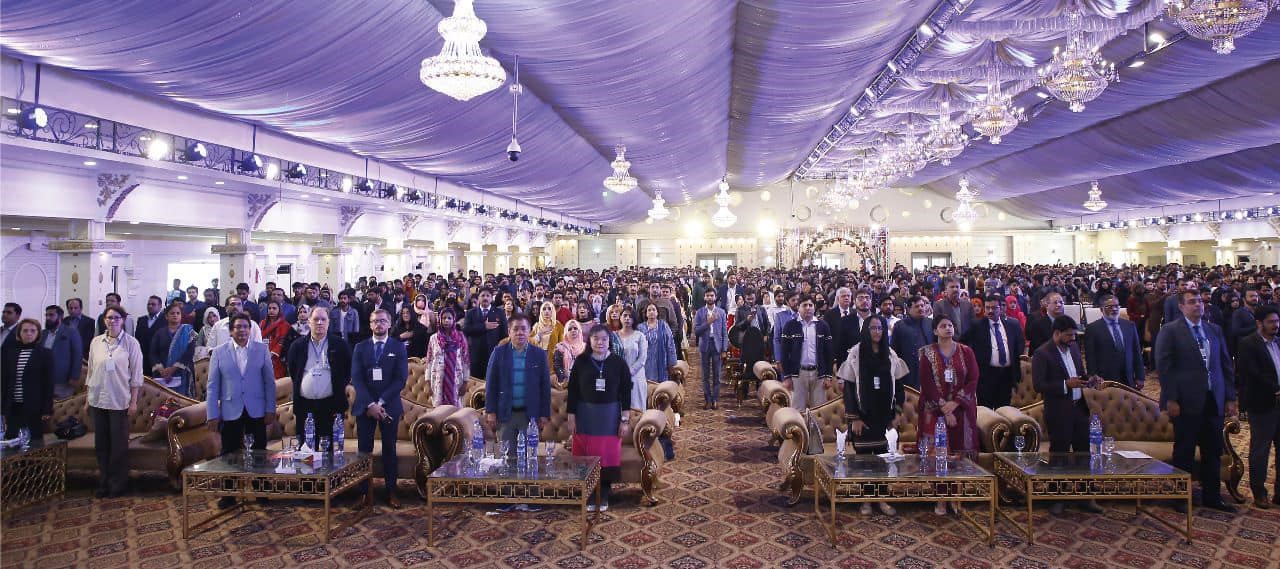The Rehabilitation and Allied Health Sciences Conference (RASCON) has long been a beacon of knowledge and innovation in Pakistan, but its impact extends far beyond the borders of the country. With each iteration, RASCON has evolved into a dynamic, internationally recognized platform that connects healthcare professionals, researchers, and innovators from around the world. The conference is not only a hub for local professionals to advance their skills, but it has also sparked a global movement, propelling research and collaboration in rehabilitation and allied health sciences to new heights.
At the core of RASCON’s international impact is its ability to foster cross-border research collaboration, pushing the boundaries of knowledge and enhancing healthcare practices globally. The previous editions of RASCON have demonstrated the conference’s capacity to link diverse healthcare communities, resulting in groundbreaking research, the exchange of innovative ideas, and the establishment of long-term international partnerships that have reshaped healthcare practices.
At its core, RASCON is a celebration of international cooperation. By uniting healthcare professionals from around the world, the conference serves as a melting pot for ideas, best practices, and cutting-edge research. The collaboration between Pakistan and its international counterparts has opened the doors to global healthcare advancements, encouraging professionals to challenge the status quo and think beyond traditional boundaries.
Through the international chapters of RASCON, held in diverse locations such as Istanbul, the conference has provided a platform for researchers and healthcare professionals from countries with differing healthcare systems to engage in critical discussions. This collaboration has ignited conversations on the future of rehabilitation technology, policy reform, and patient care strategies, shaping healthcare practices in regions across the globe.
Perhaps the most profound aspect of RASCON’s international influence is its role in driving research advancements. Every year, the conference hosts international speakers and researchers who present the latest developments in rehabilitation science and allied health practices. These sessions expose the global community to the most recent findings in rehabilitation research, particularly in the fields of assistive technologies, neurorehabilitation, and artificial intelligence.
The conference serves as a launching pad for new studies, with many research papers and findings presented at RASCON leading to global collaborations that have the potential to reshape how rehabilitation is practiced worldwide. International researchers find RASCON to be a fertile ground for networking, often leading to collaborative projects and multi-country research trials that explore the global applicability of different rehabilitation methods.
From introducing groundbreaking ideas like tele-rehabilitation to exploring the use of robotics in patient therapy, RASCON’s commitment to advancing the field of research and encouraging the exchange of innovative ideas has made it a central hub for driving progress on a global scale.
One of the standout achievements of RASCON has been its role in creating international partnerships between research institutions, healthcare providers, and rehabilitation centers. These partnerships have led to a wealth of joint ventures, with institutions from across the globe collaborating on large-scale research projects, clinical trials, and policy initiatives.
By fostering cross-border collaborations, RASCON has helped bridge gaps between nations with varying resources, creating a more inclusive and globally aware healthcare community. The networking opportunities presented by RASCON allow professionals from developing countries like Pakistan to collaborate with experts from well-established healthcare hubs such as the United States, Europe, and Australia. This exchange of knowledge and resources has made cutting-edge rehabilitation technologies more accessible to developing nations, empowering local healthcare systems to deliver better care to their populations.
As healthcare practices evolve, so too must the ethical standards that guide them. At RASCON, the emphasis on ethics in rehabilitation practices has not only influenced local policies but has also sparked global conversations on the ethical use of technology in rehabilitation. With the increasing integration of artificial intelligence, machine learning, and robotics in healthcare, ensuring that these technologies are implemented ethically and responsibly is paramount.
Through the presentations and discussions held at RASCON, the global healthcare community has been able to explore ethical concerns related to technology, patient privacy, and the potential risks of AI in rehabilitation. These discussions have played a vital role in developing ethical frameworks that are now being adopted worldwide, ensuring that rehabilitation technologies are used to improve patient care while maintaining patient rights and dignity.
While the impact of RASCON’s research and collaboration is visible in the clinical realm, the conference’s international influence also extends to health policy reform. One of the key outcomes of RASCON’s international impact has been the creation of a policy advocacy platform that addresses the global need for improved rehabilitation services.
The exchange of ideas between international thought leaders has led to the creation of policy recommendations that have been adopted by governments and healthcare organizations globally. These recommendations have focused on integrating rehabilitation services into national healthcare systems, increasing funding for rehabilitation research, and advocating for the inclusion of rehabilitation sciences in public health agendas.
RASCON has also played an instrumental role in expanding global awareness of rehabilitation sciences. By attracting healthcare professionals from all over the world, the conference has become a space where the world’s most pressing rehabilitation challenges are discussed. Issues such as chronic disability, ageing populations, and rehabilitation for conflict survivors have been central to the conference’s themes, sparking international initiatives aimed at addressing these challenges.
From global telemedicine initiatives to cross-border collaborations in disaster rehabilitation, RASCON has contributed to building a global awareness of rehabilitation’s critical role in healthcare systems worldwide. As a result, the conference has not only improved the practice of rehabilitation but has also contributed to humanitarian efforts across the globe.
As RASCON continues to grow and evolve, its international influence will undoubtedly expand. The research advancements, collaborations, and ethical frameworks shaped by the conference will leave an indelible mark on the future of rehabilitation sciences globally.
In the years to come, RASCON’s vision of uniting international minds, driving cutting-edge research, and fostering cross-border healthcare collaboration will continue to shape the way rehabilitation and allied health services are delivered around the world. With each edition, RASCON moves closer to its ultimate goal: transforming healthcare practices worldwide, one collaboration, one breakthrough, and one innovative idea at a time.
RASCON is not just a conference; it’s a global revolution in rehabilitation and allied health sciences that’s changing the way we care for patients worldwide.

